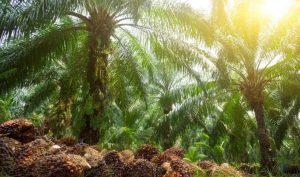Published on: December 7, 2018

There has been controversy over Greenpeace’s Rang-tan campaign and UK retailer Iceland Food’s holiday ‘no palm oil’ campaign and you’ve likely read about it on social media as well.
The campaigns have been widely featured in the news over the last few weeks and thousands of consumers, influencers and celebrities have been eager to take their personal stance on palm oil by sharing posts and videos online, signing petitions, or calling for a boycott.
With this sudden flurry of attention the messages get confusing. Should you re-think the use of palm oil? Should you use it at all?
As a conscious consumer that likely wants to help safeguard the planet and contribute positively to its biodiversity, these are fair questions. Yes, you should absolutely pause to think about the kind of palm oil that you are consuming, but don’t drop palm oil all together. The solution lies in genuinely sustainable palm oil.
Palm Done Right.
Boycotting is not the answer. A call to simply boycott palm oil does not convey the complexity of the issue at hand. Boycotting palm oil is not the answer to saving the environment. In fact, palm oil can even be an answer to saving the environment, as long as Palm is Done Right.
Sustainable palm oil is possible! Environmentally friendly palm oil exists, we like to call it Palm Done Right. Palm Done Right is organic, deforestation-free and orangutan friendly. It is available in the US market already and is used by brands like Dr. Bronner, Nutiva and Jovial Foods. Boulder-based company Natural Habitats, creator of the Palm Done Right movement, brings genuinely sustainable palm oil to the market as a solution to brands and retailers that want to serve the planet. Together we can start replacing conventional, ‘dirty’ palm oil with environmentally friendly palm oil.
Palm oil is the most productive vegetable oil crop.
Alternative vegetable oils aren’t better, in fact, palm oil produces at least six times more oil per hectare than its closest rivals, rapeseed and soy. Because land is one of the most limited resources on our overcrowded planet, switching to an oil crop that takes up so much more land is likely to cause even greater environmental damage.
Environmental impact. The conventional oil palm industry faces significant challenges including crises of deforestation and wildlife habitat loss. Further encroachment onto sensitive native forest areas should be minimized and eventually halted. However, boycotting palm oil is not the solution and is short-sighted. Boycotting palm oil will only shift deforestation and biodiversity loss to other parts of the world for the sourcing of other, less productive, vegetable oils.
Written by Monique van Wijnbergen, Natural Habitat’s Sustainability & Corporate Communications Director and spokesperson for Palm Done Right.
Palm can be grown for good, bringing benefits to:
Together, we can influence change for: